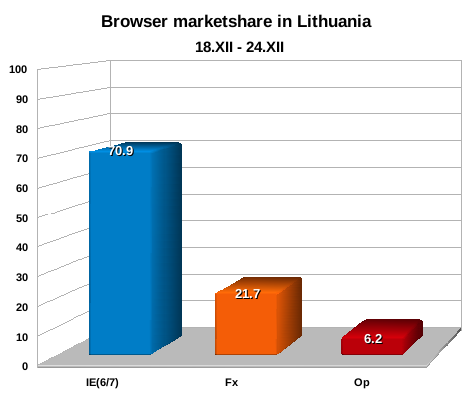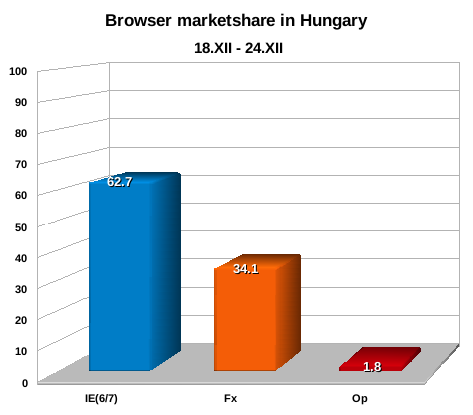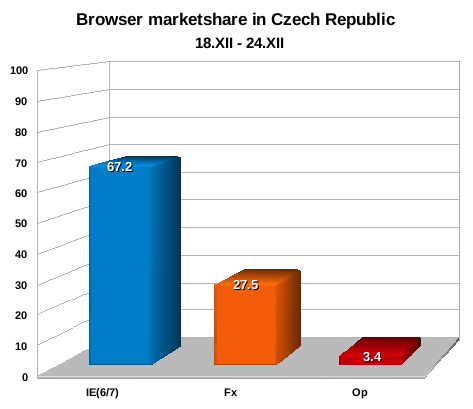Gratulációk!!! 🙂
It’s incredible. Would you believe me if I told you about a product made by an open source community of people, all gathered around a non-profit foundation could be a significant challenger to a competitor whose product is bundled with the most popular operating system on Earth?
 Welcome to Hungary – a 10 mln people country in Central Europe, where according to the latest results from Gemius Weekly*, Mozilla Firefox 2 has reached the top of the browser version list there.
Welcome to Hungary – a 10 mln people country in Central Europe, where according to the latest results from Gemius Weekly*, Mozilla Firefox 2 has reached the top of the browser version list there.
Of course it doesn’t mean that we’re the most popular browser in Hungary (yet!) – the number of IE 6 and IE 7 users when added together still means Microsoft has a total market share of 60%, but for the first time in the history of Mozilla project we have seen from an external and reliable data source – a country reporting Firefox topping the browser “Version” list.**
Amazing… And we’re just 10 years old. 🙂
Now for more hard work… we need to start thinking even further about how we can achieve our mission with a much stronger position, especially as this may soon be happening in several other countries as well 😉
Congratulations to the Hungarian Mozilla Team!
*) Gemius claims their data is reliable for the country. According to my estimations it really is (they measure over 60% of the Internet traffic in Hungary).
**) No we’re not sure if this is the first country with such result, but it’s the first measured result we know about. 🙂






